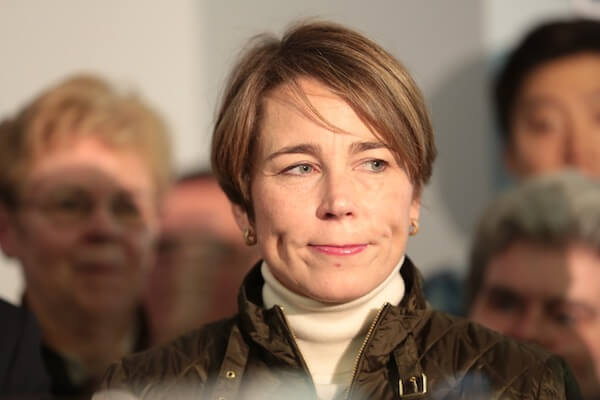Attorney General-elect Maura Healey intends to make combating opiate addiction her first order of business, laying the groundwork before she takes office for a task force to help bolster state efforts to reduce heroin and prescription drug abuse. Healey’s focus on the drug abuse crisis could give her early common ground to work with Governor-elect Charlie Baker’s administration and help set the agenda for the coming months.
Baker, who will be sworn in on Thursday, has also identified opioid addiction as a top action item for the first months of his administration.
Healey on Monday will announce plans to form an internal task force to look at opiate and prescription drug abuse. She said she wants to expand the reach of the state’s prescription monitoring program, bolster public education and outreach programming and examine reasons for the spike in cost for the anti-overdose medication Naloxone. “This is a priority for me. I saw over the course of the last year while campaigning how desperate and urgent the need is for addressing prescription drug abuse,” Healey said in an interview. “Listening to the stories of people who came up to me, you can’t help but be moved by it. I think there is a public health crisis and this has cost families and communities a great deal.” Healey also wants to work with private insurers to expand the use of “pharmacy lock-in” programs, which lock patients suspected of doctor shopping into a single pharmacy so their prescriptions can be more carefully monitored. Gov. Deval Patrick in August signed a law aimed at removing barriers to addiction treatment by requiring insurers to reimburse patients for treatment from licensed counselors. The law removes prior-authorization requirements for outpatient treatment and provides coverage of up to 14 days in an inpatient setting, if deemed medically appropriate. According to plans, the task force will work with district attorneys, pharmacists, drug abuse prevention experts, the State Police, lawmakers and other stakeholders to develop a comprehensive strategy. Healey said she wants to make the state’s Prescription Monitoring Program easier for doctors and pharmacists to use and partner with other states to share prescription information with prescribers and law enforcement. She also hopes to use the financial resources already in the attorney general’s office to develop and fund public education programs, and said she will advocate for safe disposal boxes for prescription drugs to be located in communities around the state. While Healey said she wants pharmaceutical companies to be a partner in the effort, she also plans to investigate why Naloxone, or Narcan kits have nearly doubled in price since the overdose-reversing drug became more commonly carried by first responders. “What I want to keep an eye on is the marketing and sales practices by pharmaceutical companies, and I want to make sure no company is taking advantage of a situation to jack up the price,” Healey said. “For some departments and first responders the price increases have been hard to swallow. If they’re acting in a way that’s anti-consumer, I’ll be an attorney general that’s there to address it.” Healey won’t officially take office, succeeding her former boss Attorney General Martha Coakley, until Jan. 21, but the Charlestown Democrat has already had an initial conversation with Baker where the two discussed the drug crisis in Massachusetts. Healey said the State Police in the first two weeks of December alone reported 58 deaths attributed to opiate abuse.
“It was one of the first things we talked about when we met and we both appreciate the urgency of it,” Healey said of her talk with Baker. She said she hopes to work with administration to expand the use of the drug courts and increase treatment options, while also investigating “pill mills” and deploying police to areas of high drug trafficking. Norfolk County District Attorney Michael Morrissey has worked with Healey on the formation of the task force, and said he welcomes her focus on the issue, particularly any effort to strengthen prescription monitoring. “She gets it and understands we have to make it stronger and user friendly and more real time,” Morrissey said. “We have 64 people who died last year and 91 this year in Norfolk County in spite of all the good work. It doesn’t appear to be abating.” Morrissey said only about half of the 600 retail pharmacists in Norfolk County are registered to use the prescription monitoring program. He said he is also working with Congressman William Keating to get the Veterans Administration involved in the program. The prosecutor also noted how the cost of Narcan, which he said has been used at least 300 times in Quincy over the last three years, has climbed from roughly $28 per kit to $48.
“I wish I had stock in it,” Morrissey said. “I was able to use money confiscated from drug deals to buy kits and use their own money against them, but obviously the cheaper it is the easier it is to put in the hands of people who need it.” Todd Brown, the executive director of the Massachusetts Independent Pharmacists Association, said prescribers and pharmacies are not fully taking advantage of the potential to mine data from the prescription monitoring program to identify problem patients. “One of the best ways to deal with the problem is access. If they don’t have a prescription they can’t get it,” Brown said.
AG-elect to set up drug abuse task force

Metro file


















